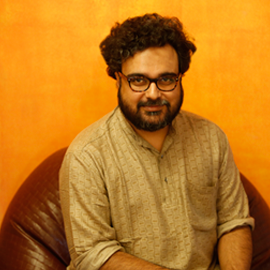BJP goes national against JNU 'anti-nationals'. Will the fire spread?

The campaign
- The BJP has decided to launch a three-day \'Jan Swabhimaan Abhiyaan\' across the country
- It wants to counter and spread awareness about certain \'anti-national\' elements within JNU
The thought process
- The JNU incident has divided public opinion into \'nationalist\' and \'anti-national\' camps
- The BJP feels people are on its side, and wants to press home the advantage
More in the story
- The political reason behind the campaign
- BJP\'s strategy to counter the Opposition outcry on this issue
Even as JNU teachers and students stand firmly against the arrest of students' union president Kanhaiya Kumar and the witch-hunt in the university campus by the Delhi Police, the ruling BJP has decided to take the issue to all corners of the country.
The BJP has launched a 'Jan Swabhimaan Abhiyaan' (campaign for people's self-respect), which begins on Thursday, 18 February. The campaign will be taken to district, mandal and state levels by workers of the BJP and its sister organisations.
Read- #JNUCrackdown: politics of paranoia around sedition can singe Rajnath
The campaign aims to counter and spread awareness among the people against "some political forces in the prestigious JNU misusing the freedom of expression and misleading the country", the party's statement read.
A BJP leader told Catch: "We will organise signature campaigns, street plays, national songs and slogans, intellectual meets, dharnas, public meetings, memoranda to district collectors, swabhimaan chaupals and many more things to make people aware about the JNU incident. This will help people know the truth and decide what is right and wrong."
Pressing home the advantage
The slogan-chanting incident in the JNU campus has spiralled into a 'nationalist' versus 'anti-national' debate. Public opinion is heavily polarised, and it's clear that the BJP wants to press home the advantage.
Teachers protesting in JNU say this is the government's ploy to "bury the Rohith Vemula suicide issue and the failures of the government. The RSS is actively involved in this entire action, and it wants to create an atmosphere against opposition".
The BJP has launched a nationwide 'Jan Swabhimaan Abhiyaan' , which begins on 18 February
Opposition parties have united in expressing their discontent with the government on the issue. They have criticised the arrest of the JNUSU president and police action in the campus, and plan to raise the issue in Parliament when the budget session begins on 23 February.
The BJP desperately wants to counter this Opposition unity, and the other political setbacks it has received, like the Bihar election defeat and Rohith's suicide at Hyderabad Central University. And it thinks that the best way to do that is by dividing public opinion further on the issue of 'anti-nationals'.
Also read- You ensured our voices were heard in JNU: A Kashmiri writes to Umar Khalid
It's a simple strategy: kill two birds - JNU and the Opposition - with one stone. Reiterating that there are 'anti-national' elements in JNU will allow the party to keep its head up in public.
Five states are going to the polls in the next couple of months, and this could help the BJP gain.
'People are with us'
Party leaders believe public sentiment is in their favour. "Who says people are angry with the action? People are with us. The don't want to be on the anti-nationals' side. No one would stand with the kind of slogans shouted in the campus," a BJP leader said on the condition of anonymity.
When the Opposition raises the issue in Parliament, the BJP plans to protest against these parties. It plans to ask Rahul Gandhi why he is supporting the 'anti-nationals' of JNU.
This counter-protest may also help the BJP divide the Opposition.
Could the fire spread?
These latest developments can damage things further. Politics over the issue is giving rise to more and more intolerant voices, and the situation is threatening to get out of hand.
The biggest concern is that even the BJP and right-wing organisations seem unable to control the hatred that is pouring out into the public domain, via social media and on the ground.
Read more: Everything you know about JNU politics is wrong
The repeated attacks on journalists at the Patiala House courts in Delhi are a case in point.
On Monday, some lawyers and BJP MLA OP Sharma attacked journalists at the courthouse, and the scene was repeated on Wednesday. Even Kanhaiya was attacked when he was brought to the court compound under police guard on Wednesday.
It's a simple strategy for political gain: kill two birds - JNU and the Opposition - with one stone
A BJP MLA from Rajasthan, Kailash Chaudhary, has reportedly said that Congress vice-president Rahul is 'anti-national' and should be shot dead.
With the BJP now taking the issue to other parts of the country, the fire could spread further, becoming more unpredictable and uncontrollable.
Edited by Shreyas Sharma
More in Catch:
The Spy Who Loved Research: Russian researcher gives free access to 48 million academic papers
Faith, forestalled: a Muslim woman is stymied when she seeks space to pray
RSS man hacked to death: is Kannur heading for another cycle of violence?
Modi government is more 'anti-national' than any JNU student. Here's proof
First published: 18 February 2016, 9:53 IST






![BJP's Kapil Mishra recreates Shankar Mahadevan’s ‘Breathless’ song to highlight Delhi pollution [WATCH] BJP's Kapil Mishra recreates Shankar Mahadevan’s ‘Breathless’ song to highlight Delhi pollution [WATCH]](https://images.catchnews.com/upload/2022/11/03/kapil-mishra_240884_300x172.png)

![Anupam Kher shares pictures of his toned body on 67th birthday [MUST SEE] Anupam Kher shares pictures of his toned body on 67th birthday [MUST SEE]](https://images.catchnews.com/upload/2022/03/07/Anupam_kher_231145_300x172.jpg)






